Principal's Update
Angelika Ireland

Principal's Update
Angelika Ireland


Last Thursday, staff and students took the time to say good-bye to Mrs. Rosemary Agnew who will be on Carer’s Leave until the end of the year looking after her elderly mother. Students wrote her cards and forwarded their best wishes. In her absence, Mrs. Gabby Tigafua will be the acting Assistant Principal.
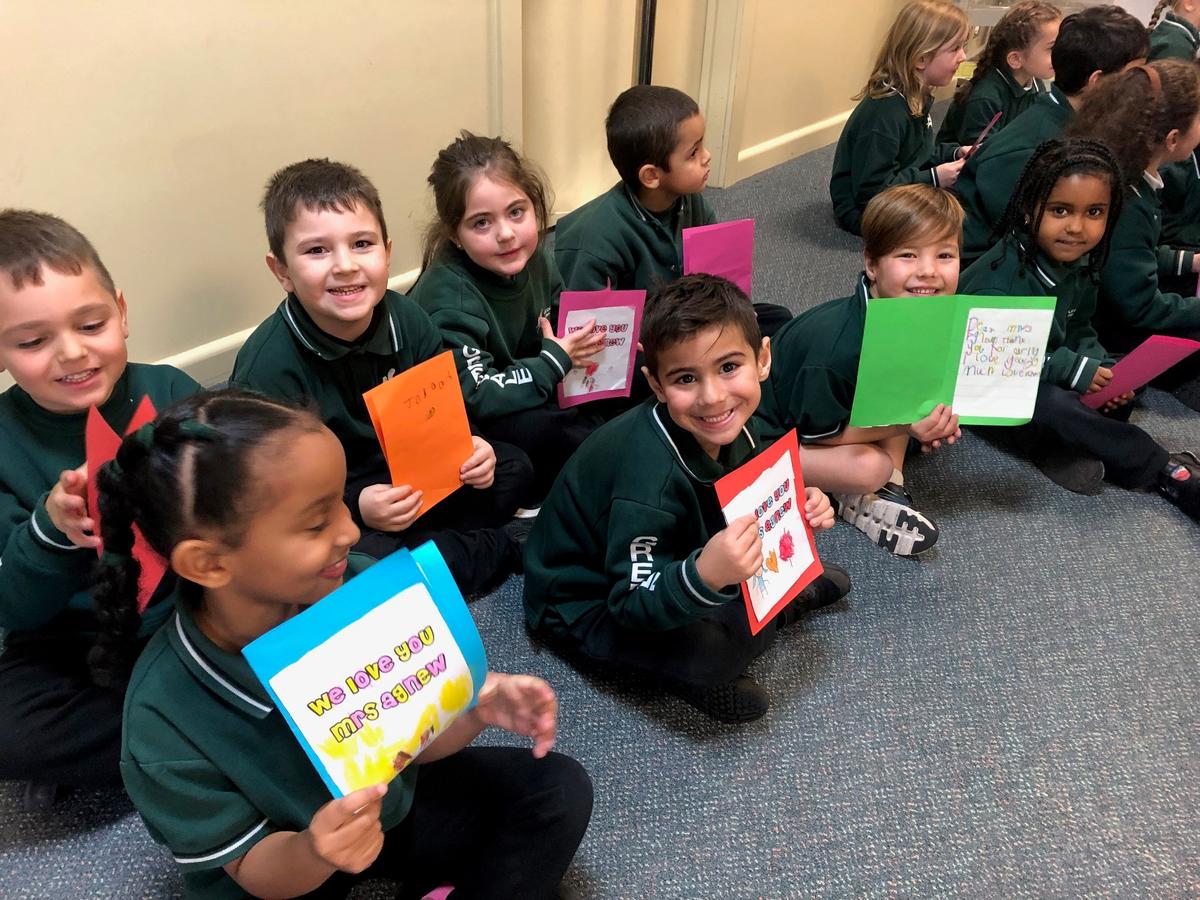
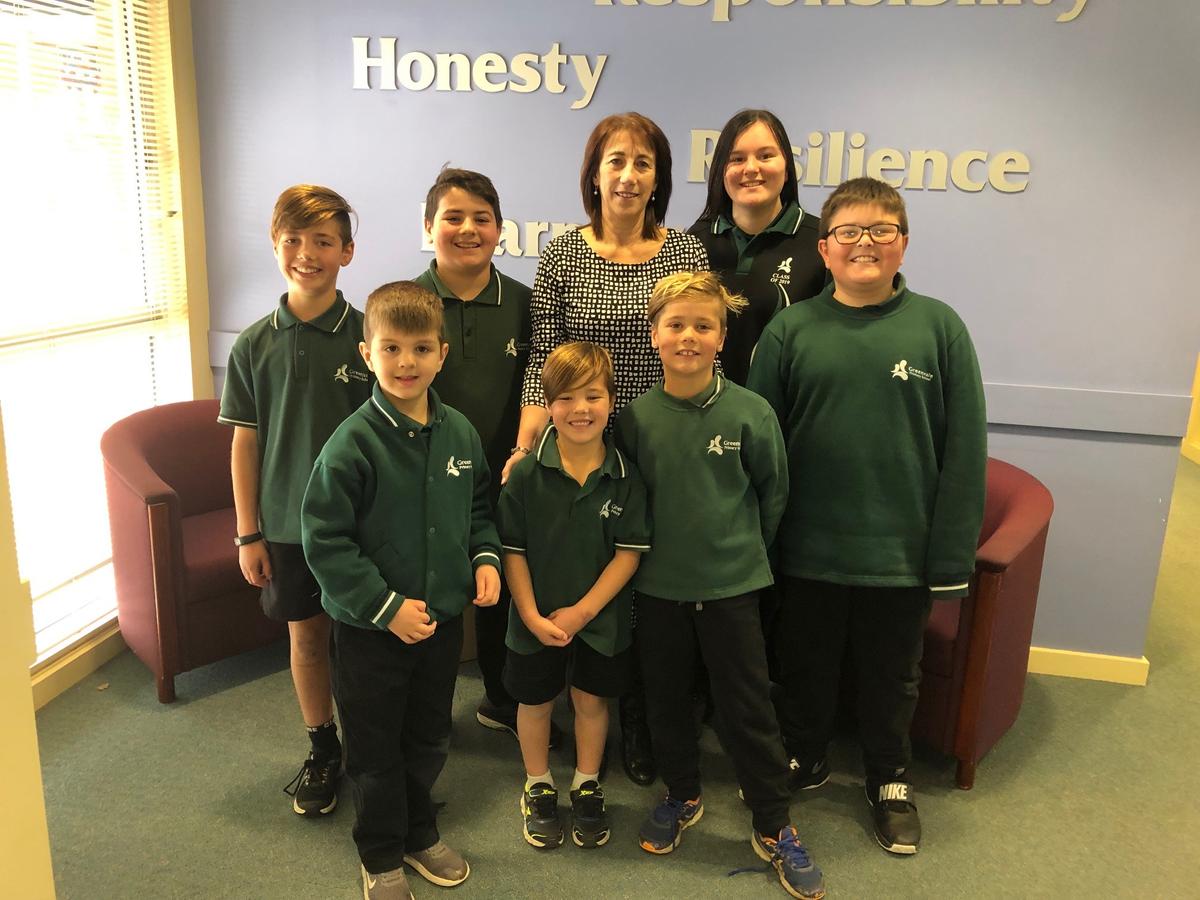




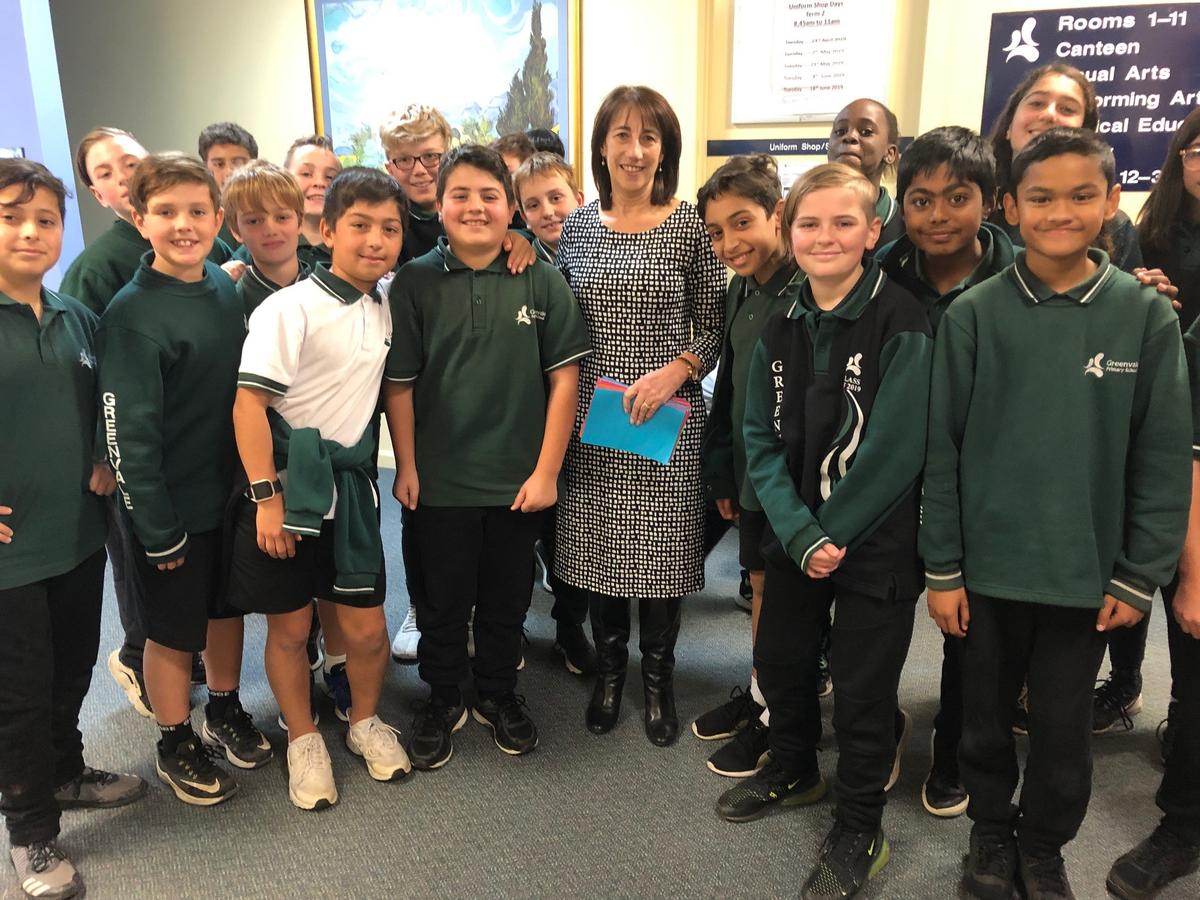

Mrs. Agnew has been at Greenvale Primary School since the start of 1989 and has taught many students over that time. She has even taught the parents of some of our students.
Pictured in the photo is Mrs. Agnew with these students:
- Emily and Lucas - taught their mother Stephanie.
- Ethan, Cooper and Brodie - taught their father Steven.
- LJ - taught his father Luigi.
- Ari - taught his father Jamie.
Greenvale students were very excited at Monday morning assembly to meet our special guest Aziz Behich. Aziz is an ex-student of Greenvale Primary school where he completed Year 5 and 6. Aziz is a current Socceroo’s player and said that he was honoured to captain the national team in their last game in Korea. He presented a personally signed Socceroo jersey and scarf to Jasmine and Rayanne, both who are House Captains and members of our Year 6 Girls Soccer team. These items will be raffled at our Footy Day in September.
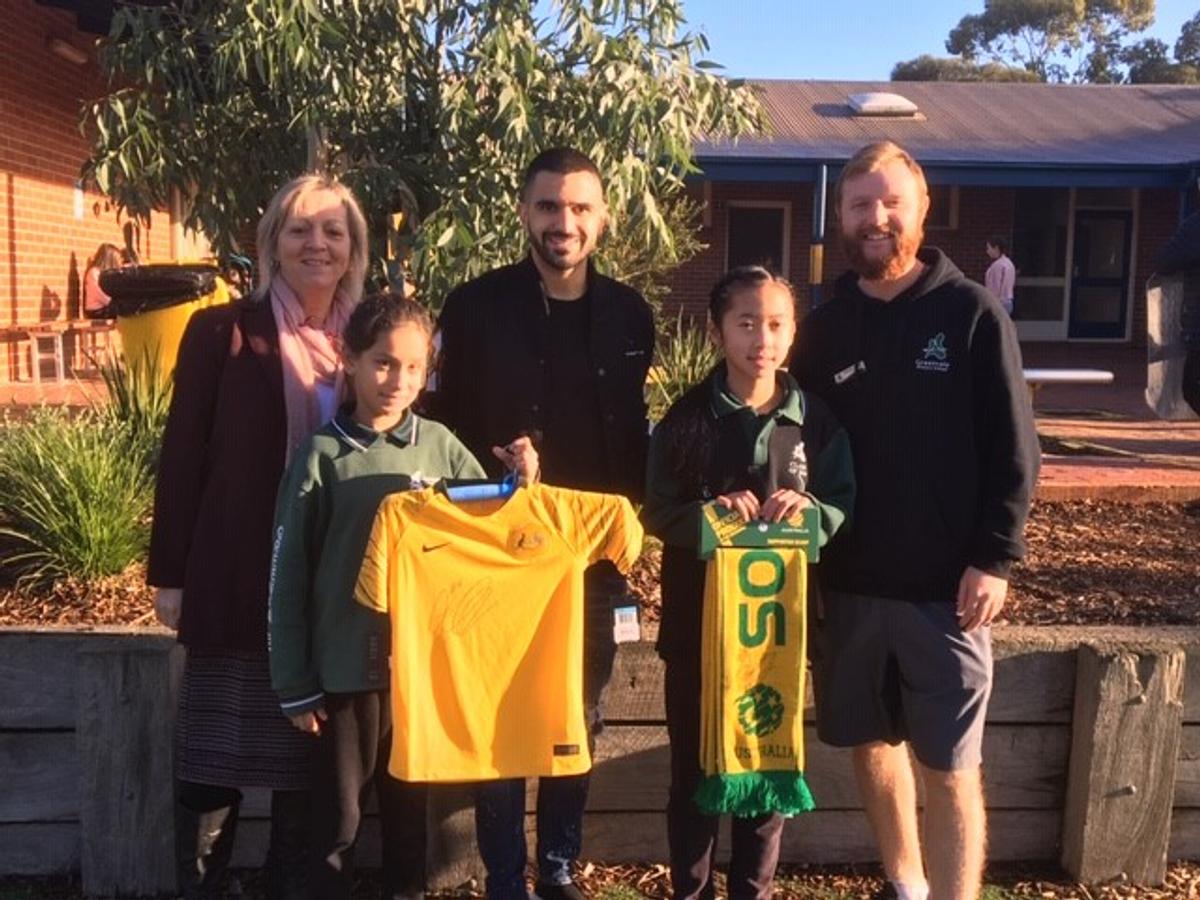

Aziz has recently been bought for a 3 year contract to play with a team in the UEFA Champions League team in Turkey. He spoke to the students about how he had a dream of being a famous soccer player when he was young and never lost sight of his dream. He started playing soccer with a local club, then moved on to play for Green Gully, Melbourne Victory, Hume City and Melbourne Heart. He then played with Turkish Super League side Bursaspor in Turkey before playing for a year in the Netherlands with PSV Eindhoven. Aziz is in Melbourne currently as he got married last weekend. Aziz’s niece, Leyla, is a student in 0MP this year.
What a magical performance! The production was a reflection of highlights in Australian History depicted by the cast and supported by songs from all of our students. The historical exhibits came to life in the museum to tell the story about these significant events in our history.
Congratulations to the cast who have been practicing their lines for so long and led the four performances that were held, and to all of our students who sang on stage. A huge thank you goes to our Performing Arts teacher, Heather Foletta, for her organisation of our first musical production and to all staff who supported in the many ways required.
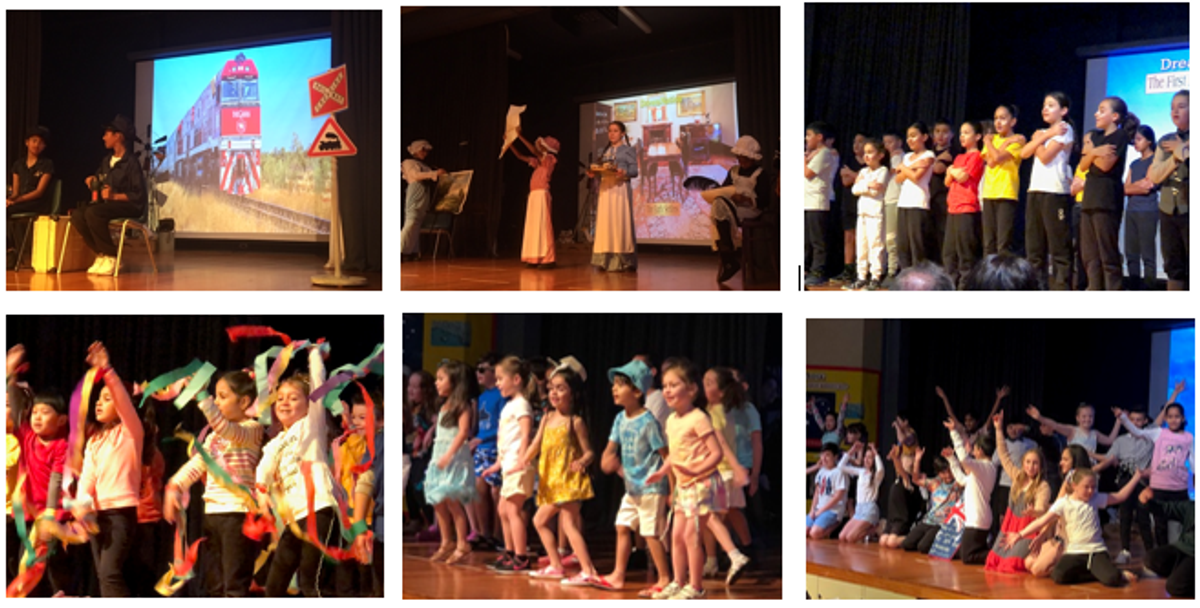

The 2019 Parent Opinion Survey will be available for parents to complete online from 22nd July to 11th August 2019. The survey seeks parent opinion on measures of school climate, student engagement, and effective teaching practice known to influence student engagement and student outcomes.
All Victorian schools are required to participate in the survey, which contributes to parent engagement and assists with school planning and improvement. Schools must generate a random sample of parents to undertake the survey. The recommended sample is 30 per cent which for our school means about 180 families. In the first week of Term 3, you will be notified by email if your family was randomly selected and invited to complete the survey. Please check your email Inbox.
This year the survey will again be conducted online by ORIMA Research Pty Ltd and will only take 15 minutes to complete. The survey can be accessed via desktop computer, laptop, tablet or mobile at any convenient time within the dates specified. Your time in completing this would be most appreciated. All responses to the survey are anonymous. If you have been selected and do not have on-line access to a device, you may come the school Library and use a computer which will be set up for this purpose.
The survey results will be reported back to our school at the end of September and will be communicated to parents through the Newsletter, at School Council and through our 2019 Annual Report to the School Community.
Thank you to the parents who attended the ThinkUKnow Cyber Safety information session last week delivered by Federal Agent Gerry Delbono from the Australian Federal Police.
I found this article published by Parenting Ideas that I thought might be of interest to parents:
9 Digital Technology Guidelines For Parents by Martine Oglethorpe
Before we help our young people, it’s best to look at our own digital habits to make sure we are providing them with what they need – that is, leading by example and being balanced role models who know when to use and when not to use their devices.
Every family is different, and will have their own ideas around what’s considered ‘normal’ or acceptable use of our beloved devices, which means there’s no universal answer. However, there are some suggestions that can help you build some rules of your own and bring some order to the way your children use digital devices at home.
1. Know what the rules and expectations are at school
School digital device policies make a great starting point for families. Every school is different – some let students keep mobile phones in lockers or backpacks, while others allow limited mobile phone usage between classes or even during class time to aid with assignments. Make sure that you and your child know what the rules are at school. Importantly, support the school and keep your own expectations in line with theirs.
2. Specify hours for digital use
Set the ground rules for when your youngsters can use their tablets and phones, and when they need to shut them off for the night. It’s just a smart way to build a habit for the whole family so it becomes ingrained and just the way things are done in your home. Keep in mind that this age group faces tremendous peer pressure to be online 24/7, and even though they’d never admit it, it might be helpful for them to have an acceptable ‘way out’ from their demanding digital life.
3. Consider a digital device ‘contract’
Mobile phone ‘contracts’ were popular with parents a few years back and they are still a smart way to go. Clearly set out your digital device usage guidelines, and print them in an agreement that you and your young one can both sign. If there are any disputes, then you both have the expectations in writing. This digital technology guideline maybe a little too formal for many people’s tastes, but it removes the grey areas around expectations that many young people are likely to exploit.
4. Lay out consequences from the start
Make the consequences clear for breaking the rules, such as taking away the phone or tablet for a set period of time. But remember, the goal isn’t to punish them, but just to set clear boundaries. Your home’s digital device guidelines should be reasonable rather than excessive, and be made in collaboration with your youngster so they feel a sense of ownership about the rules too. This should make it less likely for them to ‘break the law’, so to speak.
5. Talk about respectful relationships, safety and inappropriate images
You can’t let your young person loose in the digital world without having several conversations about how to stay safe online, how to show respectful behaviour and be aware of the pitfalls of inappropriate images. Each of these topics is a separate issue on its own, but each is deeply affected by the virtual, boundary-free nature of digital technology. This kind of digital exposure can have massive ramifications on the growth and development of young people, especially when it comes to the quality of their relationships and well-being.
6. Be prepared to learn
Be ready to learn about social media, and the different apps and games that young people may be playing. But at the same time, be mindful of their boundaries. A recent Australian survey found that young people see TV-watching as a way of connecting to their family, and social media as a way of connecting to their friends.
7. Change the rules if necessary
Many families will have a young one who believes that rules are made to be broken. They are the ones always pushing past their boundaries, their own limits and the limits of their parents’ patience. Smart parents take a more flexible approach, and believe that rules are made to be changed. Be prepared to keep evolving your rules based on your young person’s behaviour, maturity, sleep habits, their tendency to leave homework or chores unfinished, bullying or any number of issues that will invariably crop up to make them feel like your rules just aren’t working.
8. Keep digital devices out of the bedroom
If there was one rule that you should stay firm on, then this is the one. Many young people are in a constant sleep deficit as it is without bringing digital devices into the mix. They may say they want to charge it in their room. Keep the charger in a public place. They may even want to use their mobile or tablet to wake up in the morning. Applaud them on wanting to wake up on their own, but get them a regular alarm clock instead.
9. Have a ‘digital detox’ one day a week
The only way that this idea will work is if you join them in making one day a week a digital device-free day. They will probably not like it, and neither will you, but the point of having one day off is to prove that they can live without their digital device, and involve them in different forms of communication and entertainment.
Digital technology is now an integral part of our lives, but it’s not the only option we have for entertainment, information and or communication. Before we help our young people, it’s best to look at our own digital habits to make sure we are providing them with what they need – that is, leading by example and being balanced role models who know when to use and when not to use their devices. They are far more likely to walk our walk than follow our talk.
Have a safe and happy holiday with your children. Just a reminder that school ends at 1:30pm on Friday and begins again on Monday 15th July 2019.
Food For Thought:

